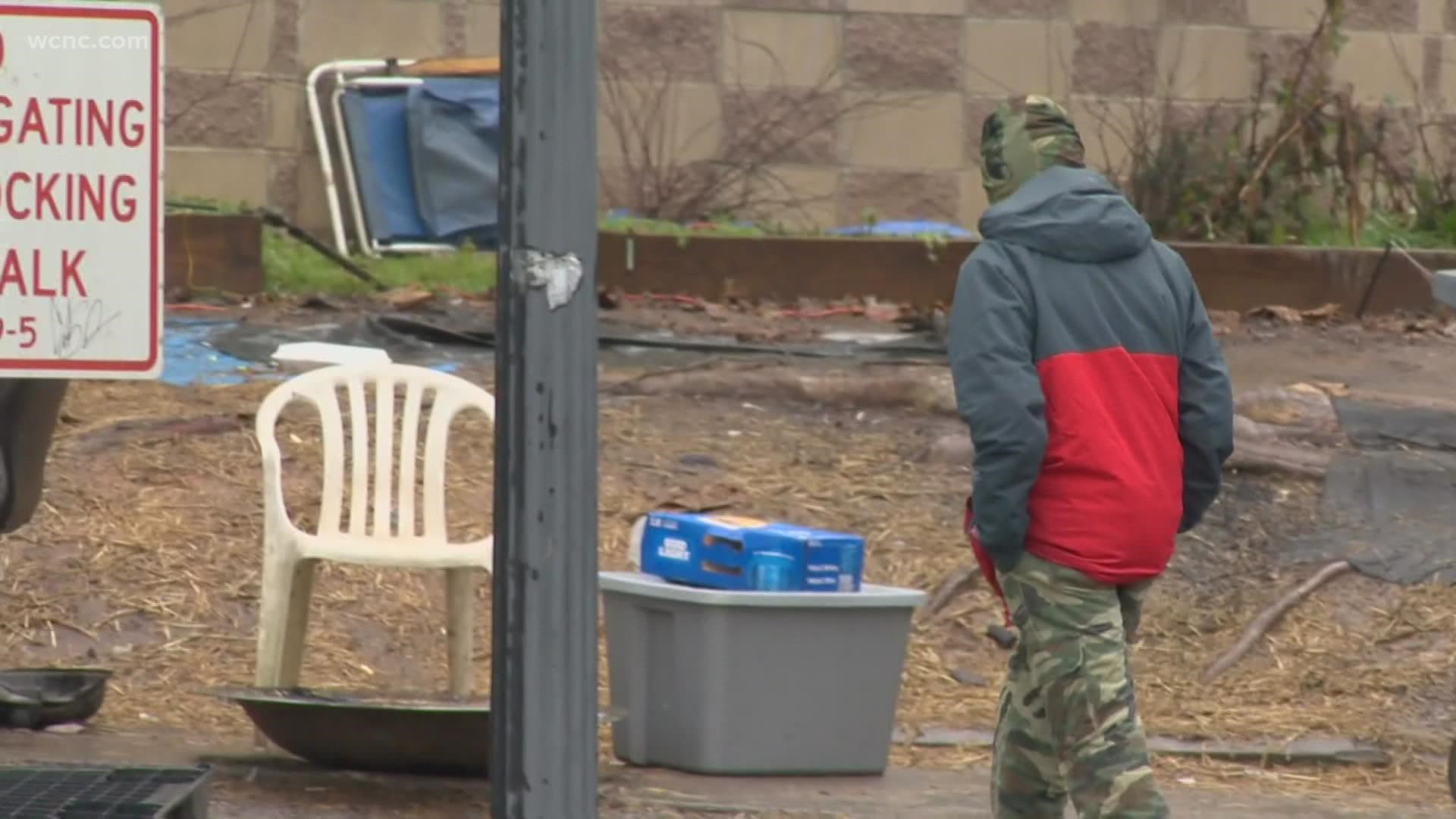CHARLOTTE, N.C. — In the thick of the pandemic, tent cities sprawled out along the streets in Uptown. Men, women, and children lived in encampments for so long the encampments became rat-infested.
Officials are now working to ensure that never happens again with the 2025 Charlotte-Mecklenburg Housing and Homelessness Strategy, or “A Home For All”.
"Our city, our community, is too progressive to have that happen,” Charlotte city councilman Malcolm Graham said.
Joel Segal, now the national campaign director for the Bring America Home Now Campaign sponsored by the National Coalition for the Homeless, hit the streets to help those experiencing homeless while tent city was up.
“I was quite frankly shocked and stunned to see that many people in tents," Segal said.
Segal said what he found after speaking to them was eye-opening.
“Working people going to bed in a tent on frozen hard ground," Segal said. "And they were telling me how hard it was to sleep and then go to work.”
Graham said although the people are now gone after being relocated, the underlying problems that led them there are not.
“As a result, we’ve come up with this comprehensive strategy in terms of how we move the community forward,” Graham said.
The 2025 Charlotte Mecklenburg Housing & Homelessness Strategy hopes to tackle the litany of factors that contribute to homelessness. It plans to address prevention, temporary shelters and transitional housing, growing permanent affordable housing, and strengthening cross-sector supports like transportation, childcare, mental health, and substance use services.
Graham said it’s a joint effort, different from anything they’ve done before.
“For so many years, we operated in silos right," Graham said. "The county did their thing, the city did our thing, the private sector did their thing, the nonprofits did the work. Now, we’re all doing it together.”
With the release of this framework, a team will work on an implementation plan in the coming months.
"There's no microwave solutions to solving this problem, this is like a slow cooker it’s going to take some time," Graham said. "But I think that acknowledging that the problem exists and collectively coming together to address it demonstrates that we all get it, that we have to do something about it.”
Segal believes those who've experienced or are experiencing homelessness should be consulted.
“If you're going to really solve this problem you’ve got to bring in impacted people," Segal said. "Find out, 'What do you need and how can we help?'"
Segal said a successful plan won't just get people off the street, but back into the community.
“Wraparound social services, that’s critical," Segal said. "You’ve got to have a jobs program. If you don’t do the jobs component and the training and the counseling, you will never break the cycle of homelessness.”
Officials say there’s no target date for the release of the implementation plan yet but project it could be ready by this summer of 2022.
Contact Lana Harris at lharris@wcnc.com and follow her on Facebook, Twitter and Instagram.

